Burst pipes, months-long outages: Konawa's water problems reflect issues faced across Oklahoma
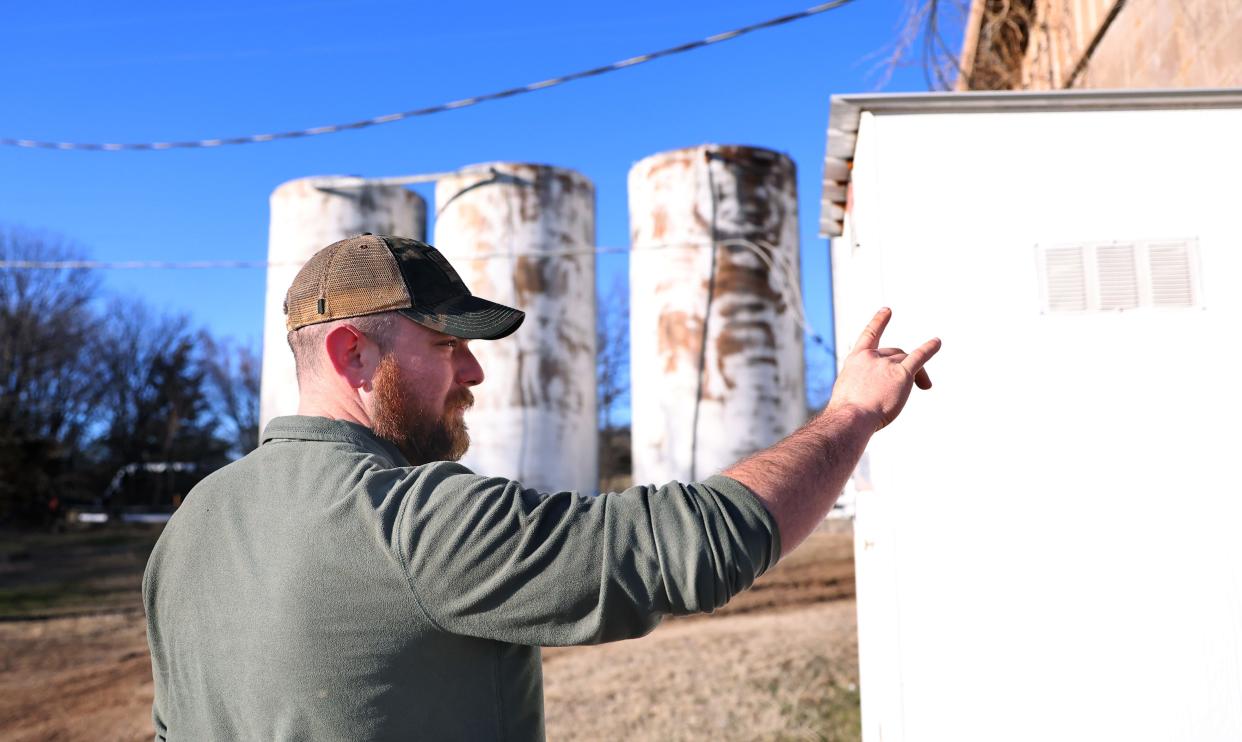
When Albert and Sherry Martin moved back to Oklahoma two and a half years ago, they settled down on a plot of land in the small rural city of Konawa, about 75 miles southeast of Oklahoma City.
They knew beforehand that plumbing in the house was bad, but they didn't realize the city had ongoing, longstanding issues providing water to its residents.
After they moved in, the couple went without service for three months.
"We were hauling water," Albert Martin said.
With a little outside help from a state agency and the Oklahoma Rural Water Association, the Martins finally got a reliable connection to their home, but the pressure was still very low. Since then, they've been plagued by similar issues as the city struggles to balance the demand for water with aging, decayed pipes that threaten to burst when exposed to normal water system pressure.
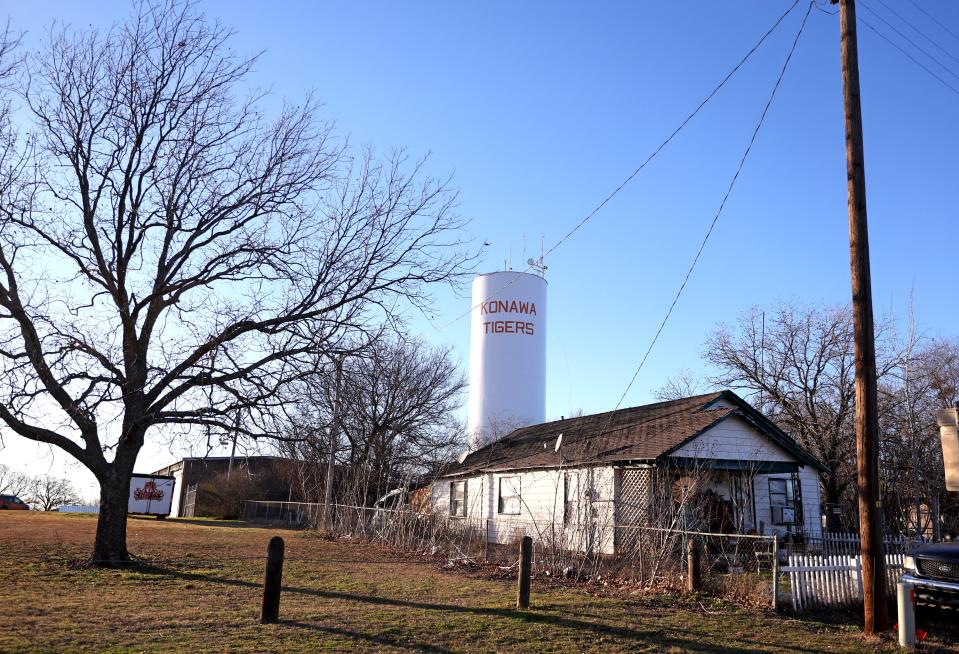
In early February during his last week on the job, former Konawa City Manager Jeremy Kemper told The Oklahoman that he wasn't able to fill the city's water tower to the top because the pressure would be too much for the miles of century-old underground pipe that makes up the Konawa's water system. Kemper left for another job after about a year in town.
Konawa also struggles with a reliable water source. Several wells adjacent to the nearby Canadian River draw what is technically surface water. The municipal water system has no access to an aquifer or large body of water, but officials in the city have been seeking a new source for years, Kemper said.
Unfortunately, reliable water service isn't just a Konawa problem. Hundreds of rural communities in Oklahoma, and many more across the nation, suffer from aging water systems that are time-consuming and expensive to replace.
It can be a challenge for a city like Konawa, population of about 1,300, to pay for upgrades to a multi-million-dollar water system on its own.
The big freeze, and a water crisis in Konawa
The situation reached a critical level in January when temperatures fell below freezing.
Pipes burst throughout the city, and one of the two pumps that move the city's water from the rivershed to a treatment facility stopped working. Kemper made what he described as a tough but important decision to temporarily shut off the entire city's water supply to give time for water tanks to refill.
Things got so bad that the city set up a portable water tank in front of city hall and handed out donated packs of bottled water. Residents who needed to shower were let into the high school fieldhouse.
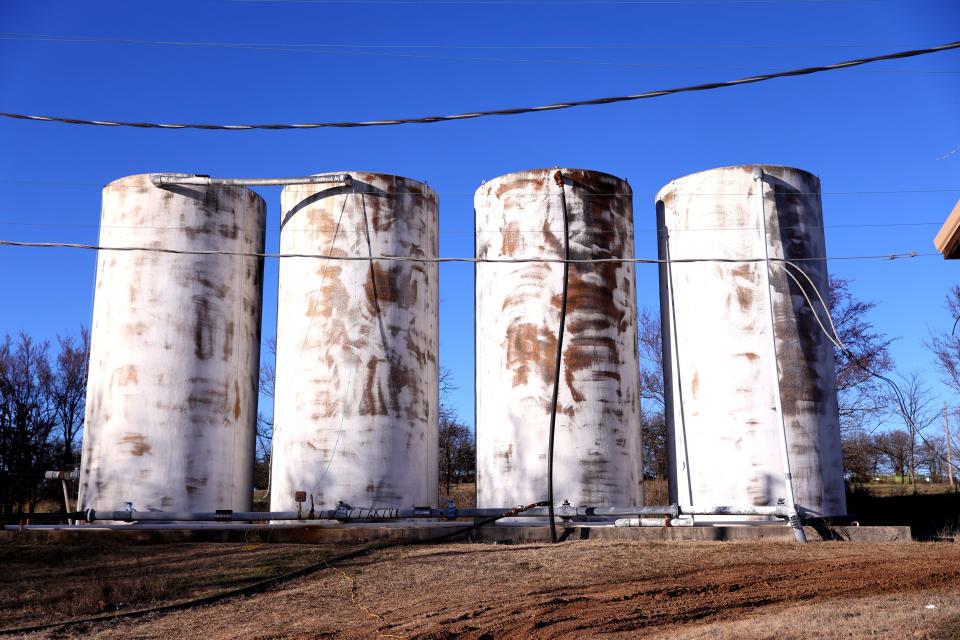
A Sonic franchise, one of the city's few restaurants, had to close for more than two weeks. Like the Martin residence, it sits on the side of town with a higher elevation. That means when water pressure drops, homes and businesses there are the first to lose service and the last to get it back.
More: How to keep your pipes from freezing and bursting during OKC ice storm
The Sonic general manager directed questions to the corporate office, which did not respond to The Oklahoman's inquiry.
In many ways, the freeze was a tipping point for Konawa. When the water came back, the debris and silt common in under-pressured pipes reached homes. Residents began posting photos of dirty water coming out of the faucets and telling their personal stories in a community Facebook group. The Martins also created their own Facebook group specifically to discuss water issues with other Konawa residents.
"I was like, now you guys see what we've been dealing with for two and a half years," Albert Martin said.
Water is a widespread rural problem
Paying for water system maintenance and upgrades are tough for cities that can't afford the millions of dollars it would cost, said Robby Short, a spokesman for the Oklahoma Water Resources Board. The agency awards millions of dollars worth of grants and loans to water systems across the state.
Short said a lack of resources and the menagerie of priorities faced by small communities doesn't help. Maintenance and replacement can be deferred for lack of funding. Hiring and keeping qualified technicians is a challenge, and all of those drawbacks can put towns in a precarious position when something goes wrong with their water system.
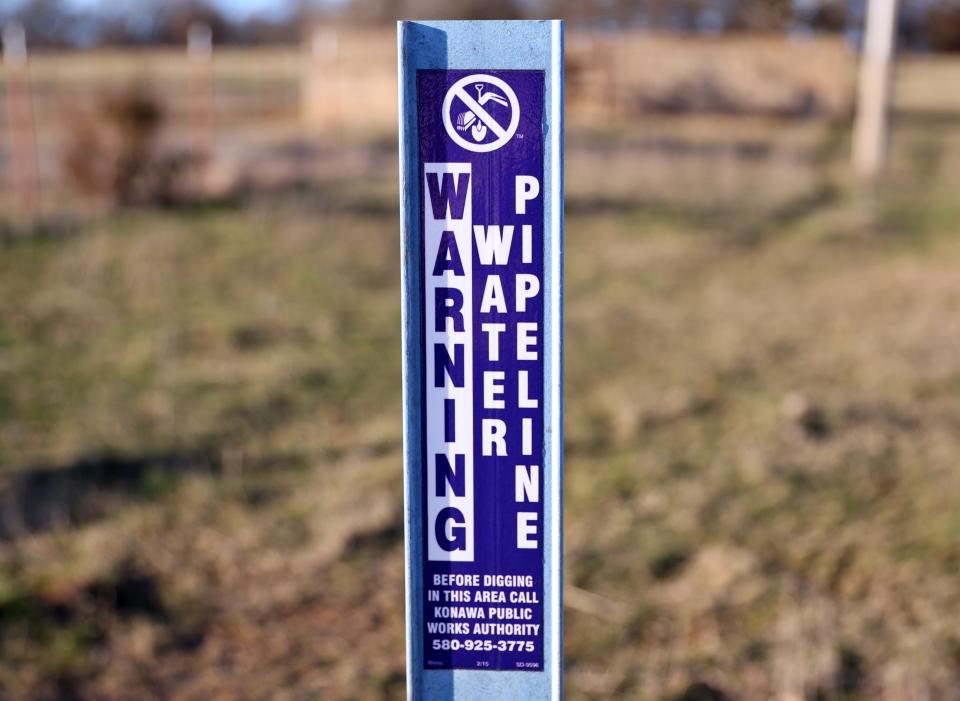
"Some (problems) are being addressed in emergency situations because they are so expensive," he said.
Still, he said, not every community is the same.
"The difference between a Konawa or Asher or Wannette can be leaps and bounds different because they're in different situations and have different needs," said Short.
More: How to stay warm, avoid hypothermia during Oklahoma's frigid temperatures
In many communities, access to water isn't the only threat. Older pipes are more likely to be made of lead, a toxic metal.
The Biden administration's 2021 infrastructure law included $50 billion for upgrades to the nation's drinking water and wastewater infrastructure. That funding includes $15 billion to cover lead pipe replacement and another $11.7 billion earmarked to help states to comply with the Safe Drinking Water Act.
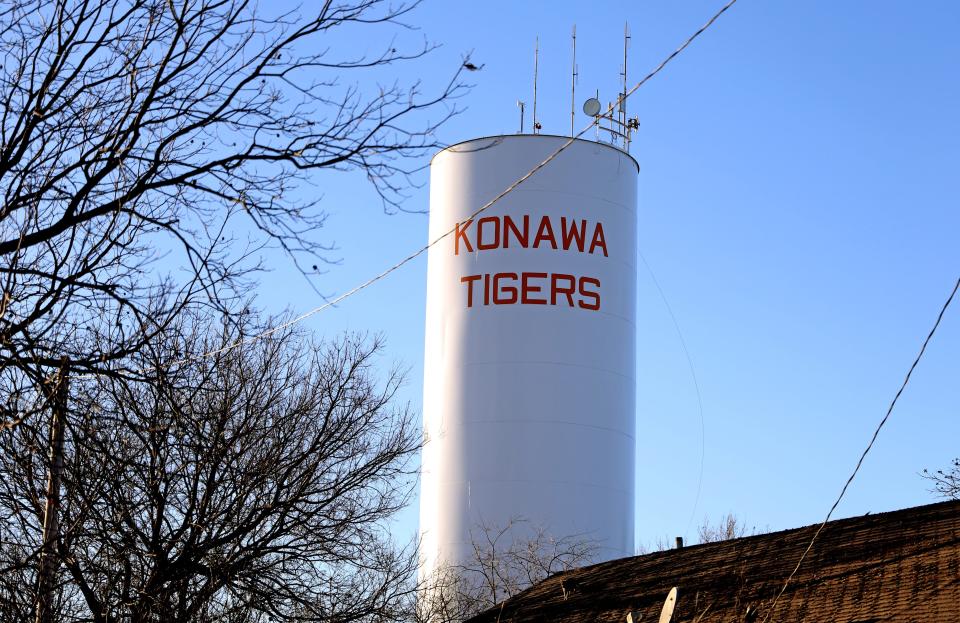
In February, Konawa's interim city manager notified residents that tests by the Oklahoma Department of Environmental Quality showed high lead levels in water samples. The letter noted that some of the readings came from homes that had been unoccupied for years, and that more recent independent testing at other locations showed acceptable levels.
Problems with city water haven't stopped development, however. Business owner Scott Duck opened a small grocery and meat processor next door to city hall, right in the middle of the COVID-19 pandemic. His store, which includes a deli counter, had to shut down during the January freeze but only for a few days.
"It's going to take time, and it's going to take a good three, four or five-phase plan to fix the problems," said Duck. "It's a 100-year-old system, and there never was any foresight of how to really maintain and replace it. So I just feel like we need to look ahead and quit looking behind, and let's pull together and get a good plan."
This article originally appeared on Oklahoman: Konawa Oklahoma struggles with water infrastructure

